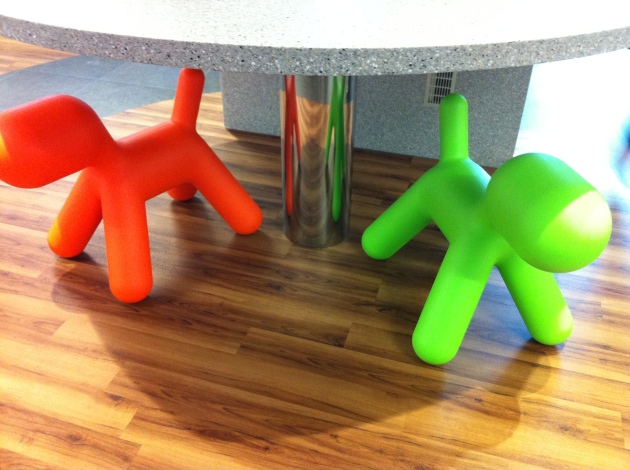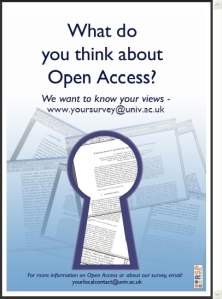A new sense of confidence in the repository community
June 17, 2011 Leave a comment
On Wednesday we held a workshop on Communication Skills for Effective Advocacy. We were very lucky to have Deborah Dalley, a freelance consultant who has been working in the field of training and development for the last 20 years, lead the activities for the day. Her background includes the food industry, the Criminal Justice System and Higher Education, for the last ten years she has been a freelance consultant working primarily in the public sector.
During the day we focused on how we can mobilize the sources of power we have to influence people. We also looked at the difference between influence and manipulation, we agreed we all wanted to stay on the side of influence as manipulation, whilst effective in the short term, rarely works in the long term.
We looked at different sources of power in relation to influence: power that comes from the position you hold; power that comes from outlining risks of not acting; power that comes from being expert in a particular area, power that comes from our connections to someone who can exert influence on our target audience (ie you need information from X for a report you are writing for the CEO who holds the power), power that comes from association (this is the type of power products mobilise when they get celebrity endorsements), power derived from tangible reward as a result of action, power that comes from personal relationships with our target audience and finally power that comes from having information and in particular having the right information and using is appropriately, not hoarding it to gain power. It was really valuable to articulate this, which most of us are aware of but tend not to consciously examine when setting out to influence others.
We found that we all use different sources of power in different situations, but that in most cases we use the source of power that would most influence us in a given situation. It was really helpful to be reminded that when trying to influence someone’s behaviour –get them to deposit their materials in the IR – it’s important to focus on them and what will motivate them.
All the sessions throughout the day were extremely useful, but one that was especially so was our session on objection handling. I was struck by the fact that we instinctively react when faced with conflict, with either fight or flight, and that it takes most people 10 seconds to start to react rationally in these situations. This really resonated for me, having worked in customer service in the past I have managed my fair share of conflict. Having key phrases or strategies on hand to help you get through the first 10 seconds can be really helpful to be able to handle objections positively and not react defensively. Again I found that articulating this process was really useful, this is something I am aware of but rarely consciously consider. As a result of this session I feel more strongly armed to diffuse potential conflict and influence.
Later in the day our panel of experts, Bill Hubbard, Jackie Wickham and Miggie Pickton handled common objections that repository mangers hear on a daily basis. In addition to a bank of tried and tested responses to common objections, what we all took away from this session was a sense that in the year since we first ran this event, we have made huge progress. We have a real sense of confidence in our position as a community and there is a real sense that the changes we have been working to implement are inevitable. One attendee said:
“I left with a new sense of confidence in our advocacy strategies and some specific actions to improve our pitch”
You will see from the pictures included that our venue was really bright and colourful, the pictures were too nice not to share with you! We were really impressed with the surroundings despite the fact that it poured with rain for most of the day – classic Manchester weather I’m led to believe.






